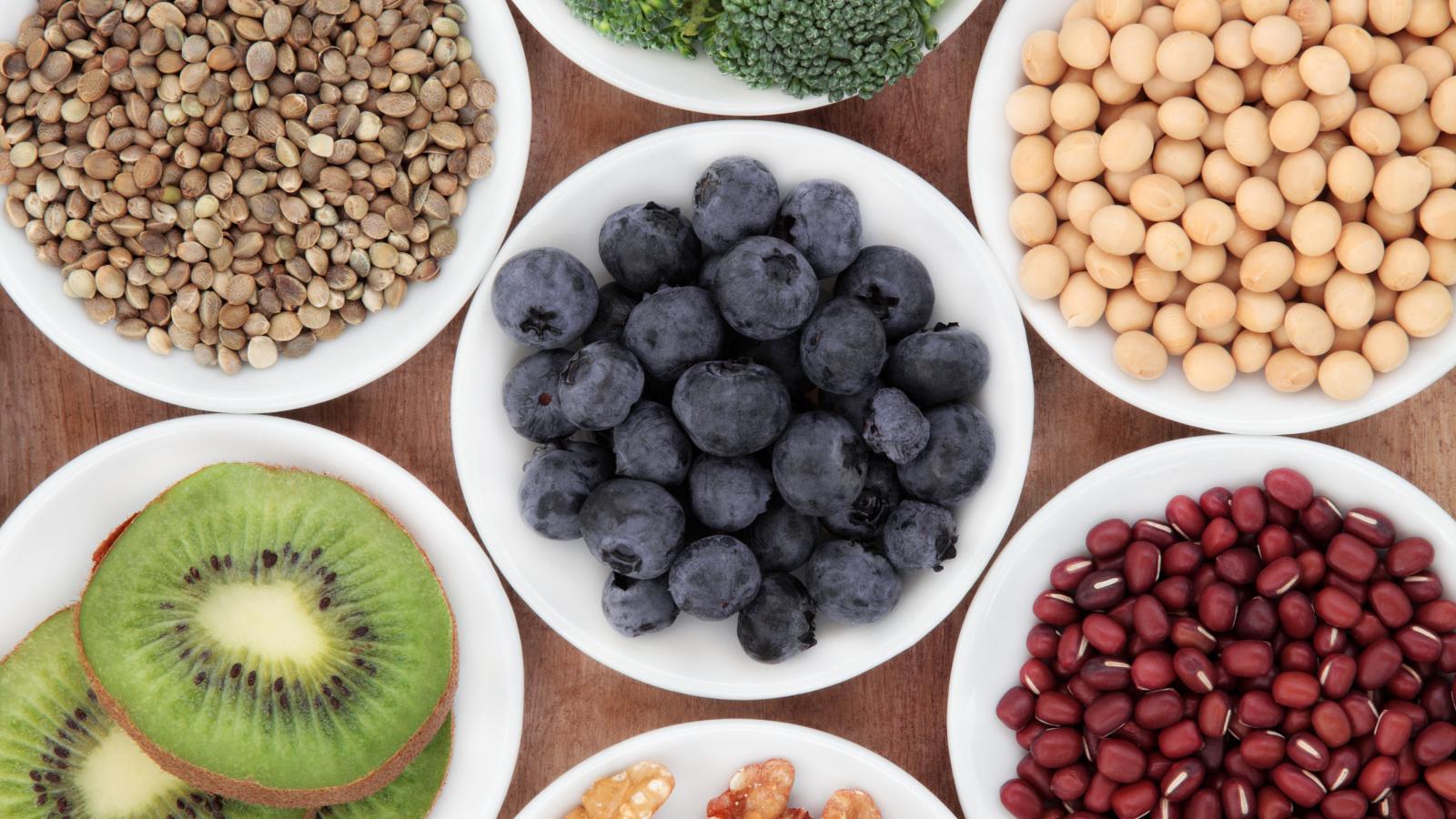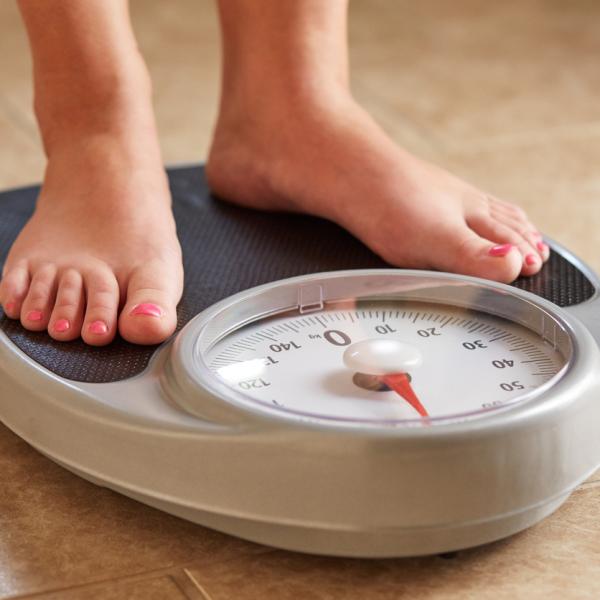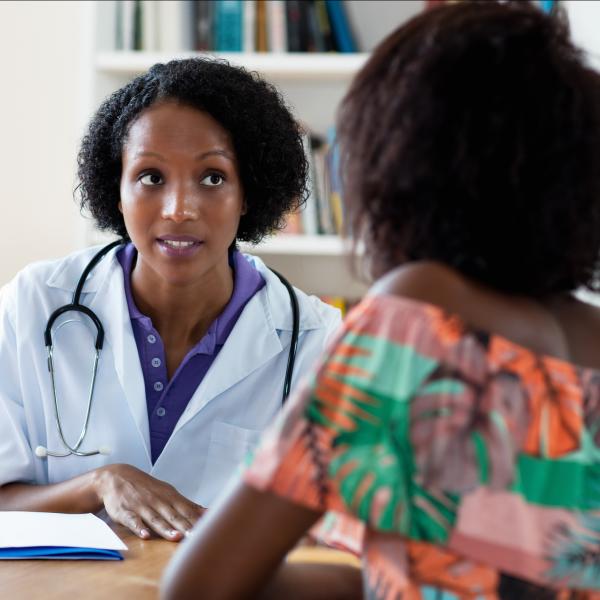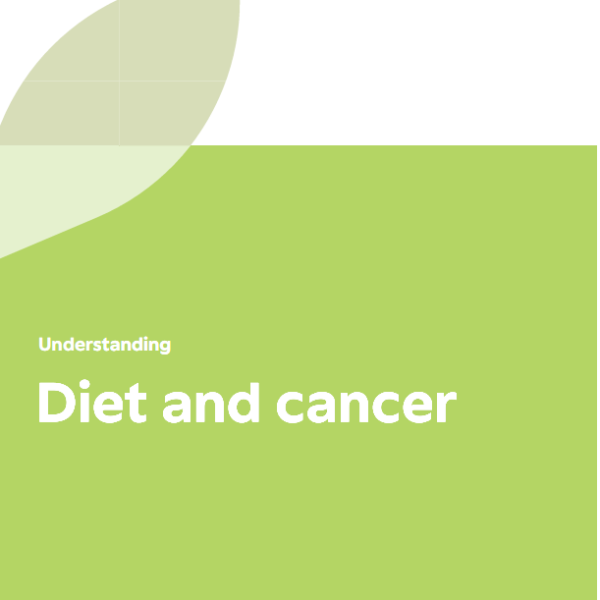Diet advice for cancer patients

Why is it important to eat well if you’ve been diagnosed with cancer?
If you have cancer, your diet during and after treatment is very important. The goal is to maintain your weight. This will help you to keep up your energy and strength, tolerate your treatment better and recover faster. Some people may need to eat differently during or after treatment to get the right nutrients and to keep a healthy body weight.
If you still have a good appetite, have no unintentional weight loss and are not underweight, you should try to follow a ‘balanced’ diet’.
Eating a well-balanced diet, which gives your body the nutrients it needs, can help you to:
- Feel better
- Keep up your energy and strength
- Keep your weight stable
- Avoid muscle loss
- Tolerate your treatment better, so you can finish your course of treatment
- Cope better with side-effects of treatment
- Reduce your risk of infection and other complications
- Recover faster
Read more about how to get a balanced diet
If you’re underweight or you’re having eating difficulties, you may need support and advice about your diet from your medical team.
It’s a good idea to weigh yourself every two weeks during your cancer treatment and let your medical team know if you’re losing weight.
Aim to keep your weight steady during your cancer treatment regardless of your body weight before treatment. Even if you are overweight or obese, you should try to maintain your weight (unless specifically advised to lose weight by your oncologist or haematologist). Weight loss during treatment can impact how you cope during your treatment. It can also make you feel more tired.
Your medical team can also help you with any eating difficulties you may be having.

Build-up diet
During cancer treatment, some people are advised to eat a high-protein, high calorie ‘build-up’ diet, to help them maintain their weight. You will be advised to follow this type of diet if you are losing weight unintentionally, if you’re having difficulty eating or if you’re underweight. Read more about build-up diets.
What are some of the diet-related difficulties that can happen?
Common eating problems include; poor appetite; taste and smell changes; sore mouth, gums or throat; difficulty swallowing; nausea; vomiting and diarrhoea. You may lose muscle, which can make you feel weaker. You may also lose or gain weight. Read more about these side-effects.
Do I need a special diet or supplements?
Don’t change your diet without advice from your doctor or dietitian. Diets not recommended by your doctor or dietitian can do more harm than good. Your doctor or dietitian will talk to you about the foods you should eat or avoid and help you if you’re having any diet-related problems.
Vitamin and mineral supplements are not recommended during cancer treatment unless advised by your doctor or dietitian. Read more about special diets and supplements.
Are there any foods that can affect treatment?
Ask your doctor if there are any foods or drinks you should avoid during treatment. For example:
Alcohol
It's best to avoid alcohol, or at least reduce how much you drink, during chemotherapy or targeted therapies. This is because it may affect treatment or dehydrate you. Ask your doctor for advice.
Alcohol may also irritate your mouth if you are receiving radiotherapy to your head, neck or chest region. Even small amounts found in mouthwashes can hurt if your mouth is inflamed.
Citrus fruits
Some citrus fruits – particularly grapefruit – can interact with some cancer drugs. Ask your doctor or pharmacist if you should avoid grapefruit or other citrus fruits during treatment.
Herbal products and vitamin/mineral supplements
Herbal products and vitamin/mineral supplements may also affect your treatment. Don’t take any supplements unless recommended by your medical team, even if you have used them safely before. Read more about supplements.
Probiotic foods
Avoid probiotic supplements if you're having chemotherapy. If your white blood cell count is low (neutropenia), it is best to avoid probiotic foods, such as probiotic drinks and yoghurts, as they contain live bacteria.

Ask your doctor or pharmacist about possible interactions and foods you should avoid with your medicine.
Dietary content updated from our Understanding Diet and Cancer booklet (2024). Reviewed by Veronica McSharry, CORU Registered Senior Dietitian in Oncology and Haematology and Fiona Roulston, CORU Registered Dietitian Manager in Oncology.
Publications

For more information
Phone
1800 200 700



